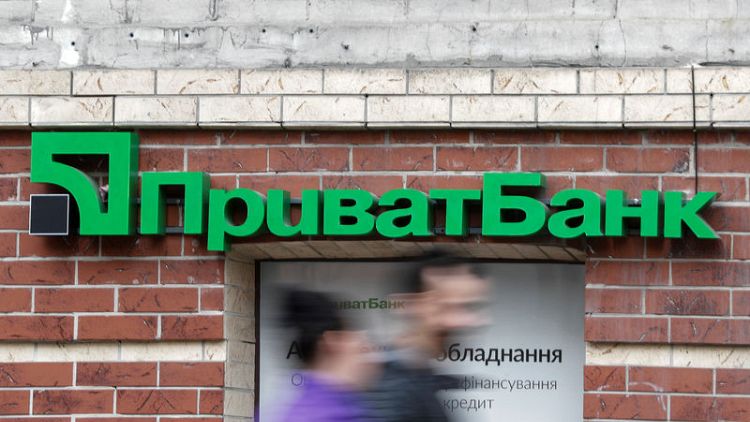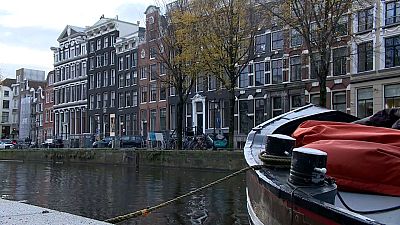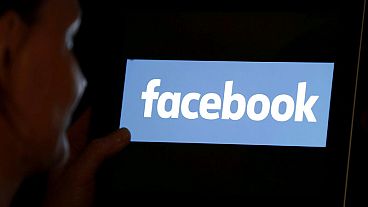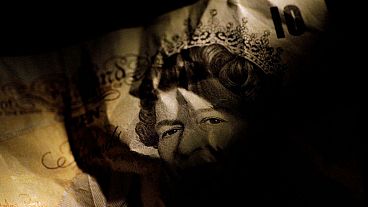KIEV (Reuters) - Ukraine's central bank on Wednesday accused Ihor Kolomoisky, the former owner of the country's largest lender PrivatBank, of paying protesters to demonstrate outside its building to disrupt its work and "create chaos".
PrivatBank was taken into state hands against the wishes of Kolomoisky in 2016, as part of an International Monetary Fund (IMF) supported clean-up of Ukraine's financial system.
In a statement on Wednesday, the Ukraine National Bank (NBU) said Kolomoisky - who says the nationalisation was illegal and has taken legal action to try to reverse it - was trying to put pressure on its management.
"Over the past few weeks, the NBU has been besieged by speculation and slander in the media, paid rallies in front of the National Bank of Ukraine's building, and even attempts by hired thugs to forcibly invade it," it said in the statement.
"We believe that this pressure on the Bank comes from Ihor Kolomoisky, an oligarch and PrivatBank's former owner who owes the state $5.5 billion he siphoned off from PrivatBank before it was nationalised."
Kolomoisky rejected the allegations and said that the main reason for the protests was the bank's exchange rate policy, aimed at strengthening the hryvnia currency, which he said was destroying the Ukrainian economy.
He said PrivatBank's case had no link to the protests.
President Volodymyr Zelenskiy, during a visit to Lithuania, said that a businessman could not appoint or fire the central bank management.
"I think that the head of the national bank is protected, can work and do his job," Zelenskiy told a news conference in Vilnius.
Zelenskiy and Kolomoisky have long-standing business ties, but the president has denied suggestions that he would help the former owner regain control of PrivatBank or win compensation.
Later on Wednesday, the central bank governor Yakiv Smoliy told reporters that the bank remained independent and felt no pressure from either President Zelenskiy or the government on its activities.
He said those organising the protests wanted to stop the cooperation with the IMF which, together with the Ukrainian authorities, insists on the return by the former owners of funds previously withdrawn from the bank.
When the bank was nationalised, the authorities said the lender had a $5.6 billion hole in its balance sheet due to shady lending practices. Kolomoisky disputed this assessment.
The authorities are pursuing separate legal claims in the courts in Ukraine and Britain seeking to recover the money.
The protracted legal battle between Kolomoisky and the Ukrainian authorities is being closely watched by investors and could weigh on Ukraine's negotiations with the IMF. Authorities warn the IMF may freeze aid if the nationalisation is reversed.
But Smoliy said he expected positive results from an IMF mission that left Ukraine last week.
The Fund said on Saturday it would continue talks with Ukraine about a new support programme in coming weeks, following significant progress in discussions so far with Kiev.
(Reporting by Pavel Polityuk and Natalia Zinets; Editing by Louise Heavens and Alex Richardson)



